
TED Talk Secrets for Inspirational Public Speaking
When it comes to public speaking, TED Talks are right up there as some of the most exciting presentations to watch.
But did you know that glossophobia, the fear of public speaking, is one of the most common phobias out there? According to The National Institute of Mental Health, it makes nearly 75% of us quake in our boots. Despite the terror, many of us will have to give a presentation at some point in our lives, whether it’s to investors, staff, or the media. You can’t hide from it – and it’s a key aspect of public relations.
So, how can you overcome the fear and give a killer presentation? Let’s take a look at some world-class TED Talks on public speaking and uncover the secrets on how to give an inspirational talk.
First up. What are TED Talks?

The TED (technology, entertainment and design) conference has hosted presentations from the world’s most engaging speakers since 2006. With the likes of J. J. Abrams, Bill Gates, Jane Goodall, and Stephen Hawking taking to the TED stage, the talks are an online sensation. They showcase moving, insightful and powerful presentations on subjects that affect us all.
TED Talks are viewed more than two million times a day, and are widely regarded as the gold standard for public speaking and presentation skills.
So, let’s get into it. What can TED teach you about public speaking?
How to give a TED Talk
Here are five of the most important TED public speaking techniques you can use to wow your audience:
1. Grab your audience’s attention right away
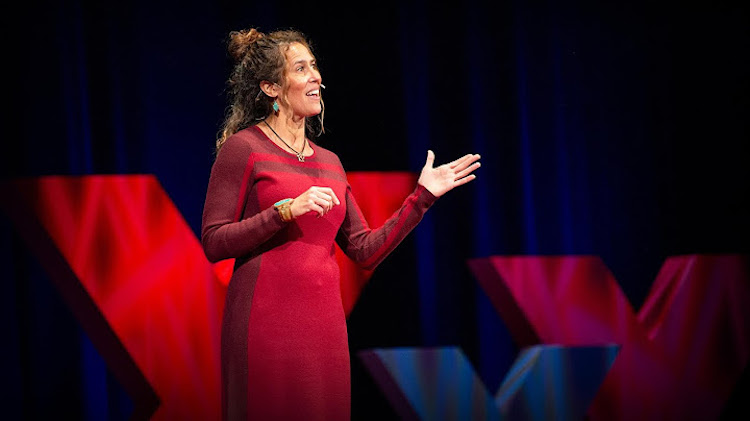
A study from the Social Psychological and Personality Science journal has shown that we form our first impression of someone within a few hundred milliseconds.
Whether it’s public speaking, TED Talks or a corporate presentation, that time is crucial for engaging your audience. Those first few seconds are when the audience is paying the most attention, so this is your golden opportunity to create an emotional bond with them.
There are many ways to do this. You can shock them with a controversial statement, make them cry, make them outraged, or just make them laugh.
Consider how Marah J. Hardt starts a talk on the reproductive habits of fish: ‘Right now, beneath a shimmering blue sea, millions of fish are having sex’.
Admit it, you want to know more, don’t you?
Hardt follows this up with more surprising facts. Did you know for example that there’s a kind of fish where every member is born female?
In just a few seconds, we understand that Hardt isn’t just an expert on the topic, but can also present it in a fun, accessible way. This is key to a strong presentation.
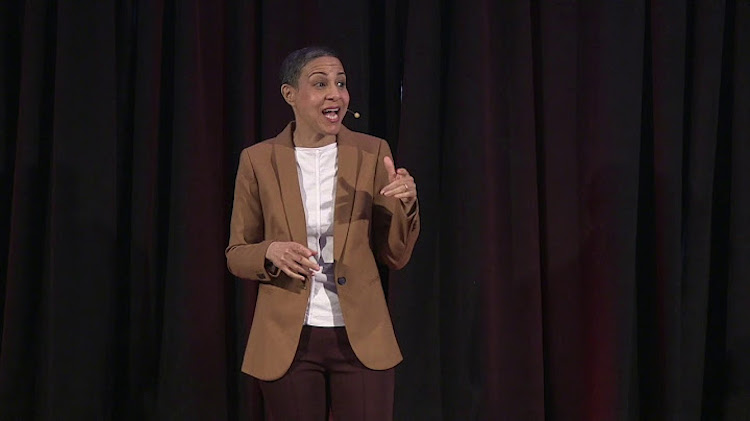
Of course, humour isn’t the only option. Elizabeth Stordeur Pryor begins a talk on the history of racial slurs with a candid example from her teaching career, where one of her students used the N-word in her class.
She speaks honestly about the incident, and how it had a profound effect on her.
The room was silent as she told her story, because she shared her own experience, rather than recounting someone else’s.
For your next presentation, whether it’s in the boardroom or at a TED Talk, making yourself vulnerable by speaking candidly about a personal experience is a great way to get your audience to empathise with you and hang on your every word.
2. Deliver the unexpected
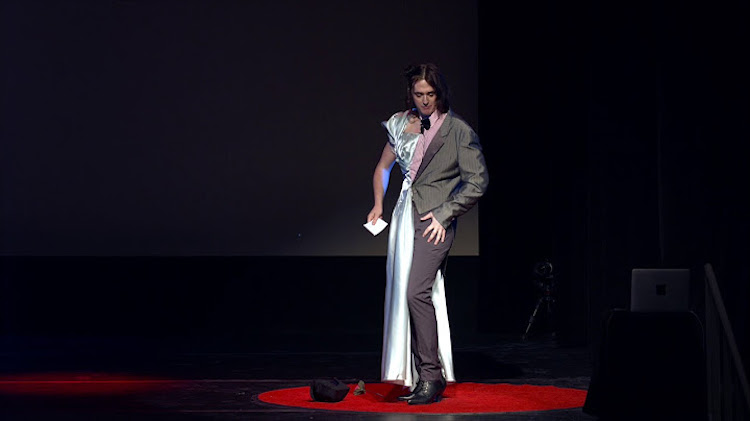
Our brains crave novelty as life is repetitive. We see the same things over and over again. And we don’t pay attention to things we expect to be the same. S. Adam Smith, a cognitive psychologist at the University of North Carolina, has even shown that repetition directly harms our ability to recall things.
This is why you need to be creative with your presentation. If you get on stage and sound like everyone else, your audience is going to switch off.
Surprises are a key way to improve your public speaking. TED Talks are no stranger to this. Just look at this unique performance by Jo Michael Rezes. Their gender-bending outfit and quirky performance gets our attention right away and keeps us engaged throughout the talk.
You don’t need to go quite to that extreme, of course. But as you plan your next presentation, think about quirks and surprises you can add that will keep your audience engaged.
A great example came from MIT (Massachusetts Institute of Technology) in early 2020. In a genius move, they recruited none other than Barack Obama to introduce their computer science course. Well, sort of. Watch the video for yourself.
3. Make it personal
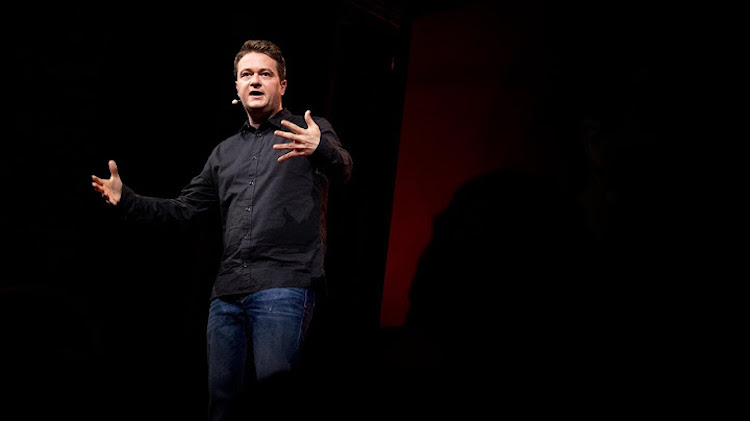
People enjoy TED Talks, public speaking and presentations because they’re personal. If it didn’t matter who was speaking, we would just read textbooks instead.
If you want to know how to do a TED Talk well, the key is to be yourself. Find ways to personalise your presentation, perhaps by telling a story that influenced your idea or product. If someone else can deliver exactly the same presentation as you, it’s not personal enough.
Grounding your talk in your personal life helps your audience relate to what you’re saying and understand it on a deeper level. Johann Hari’s 2019 talk on depression and anxiety is a great example of this. It opens with a candid discussion about his anxiety and overmedication as a teenager. As a result, we’re no longer dispassionate observers, we have an emotional understanding of the topic that simple facts, figures and statistics couldn’t give.
Getting people emotionally invested like this is the best way to make them care about what you’re saying.
Of course, for presentations or TED Talks, speaking about your past isn’t the only way to make it unique. Your expertise in a field or a part of your identity (religion, race, gender…) can also give your audience a new perspective on things.
4. Keep it light
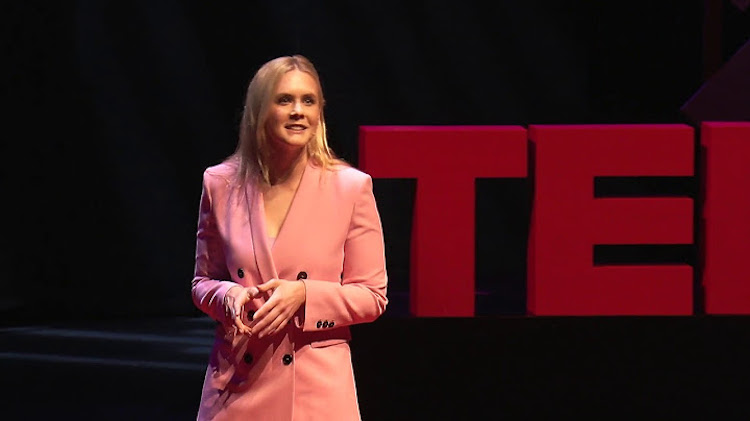
Some things are no laughing matter, and it’s important to treat them with respect. But humour is also a powerful tool for building rapport with an audience. It makes you human, rather than a cold authority figure.
In other words, jokes are often the key to a great TED Talk. Speaking of which, Susannah Temko’s presentation about being intersex is a great example.
This is a difficult and challenging topic for a lot of people, so Temko cleverly opens her talk with a joke: ‘I don’t know what you were doing at 16, but I’m a really big fan of “Harry Potter” and was waiting way too long to receive my letter inviting me to Hogwarts’.
This breaks the initial tension anyone in the audience might have been feeling.
Along the same line, jokes at your own expense are great at bridging the gap between you and your audience. They make you feel more like a friend than a presenter, which makes people more responsive to what you have to say.
Humour has several other benefits that make it great for public speaking, and public relations more generally.
The American Journal of Instructional Research, for example, has shown that it makes it easier to build relationships and remember things. So key for any kind of public speaking. TED Talks don’t always have to employ humour, but even one joke at the start can do a lot to lighten the tone and make you more approachable.
5. Give your speech a story
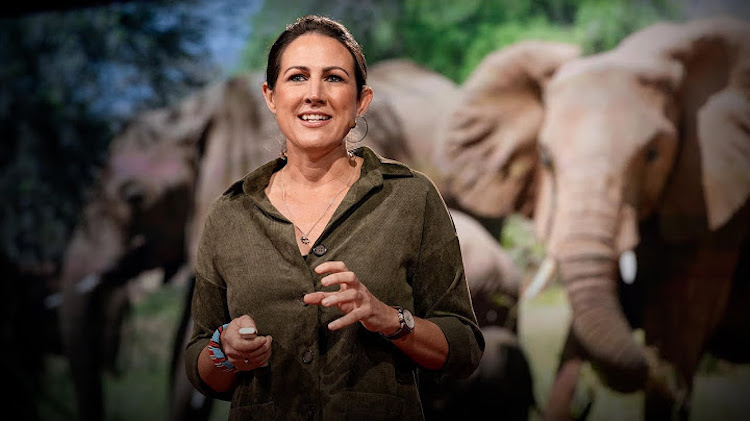
Every business has a story to tell, whether it’s the unique way your business was launched, the way your revolutionary product was invented, or the way in which your business serves the local community.
You need to find the story in yours before taking to the stage. It should have a clear beginning, middle and end, like Lucy King’s presentation on bees, elephants and humans. She begins, naturally, with exposition. By explaining her zoology background, King makes sure the audience is on the same page as her. All stories contain conflict, so she then details how humans and elephants are increasingly competing for resources, giving us a reason to care. Finally, she brings resolution by revealing that bees can scare off elephants without harming them.
Set-up, conflict, resolution — it’s a formula that’s worked for hundreds of years. If you use this pattern, you’ll find it easy to keep people hanging on your every word.
The best TED Talks on public speaking
Now that you know the secrets of public speaking, let’s see them in action. Here are five of the best TED Talks on public speaking, and what makes them so great.
1. Julian Treasure: How to speak so that people want to listen
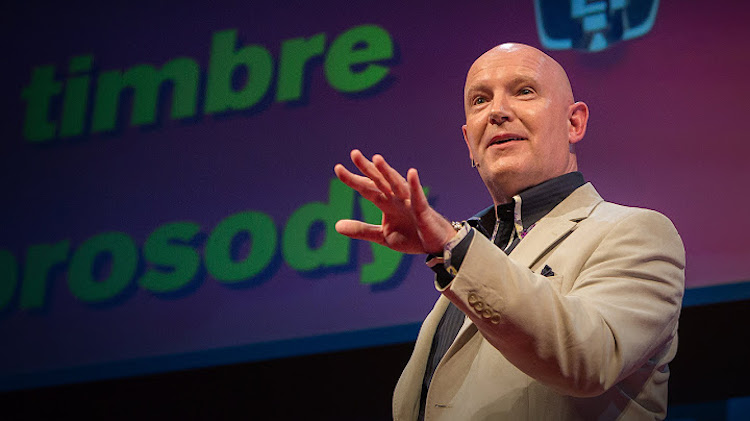
If you only watch one TED Talk on public speaking, make it this. It’s an excellent rundown of the nuts-and-bolts of public speaking, plus a great example of how to structure a talk.
Treasure gets to the meat of his talk right away: the ‘seven deadly sins’ of public speaking, followed by four techniques for countering them. He then modulates the timbre, inflection and pace of his voice to show what an impact your body posture or volume can have on your talk.
The warm-up routine at the end also demonstrates how getting your audience to do something active can end a talk on an energetic high note.
When it comes to TED Talk public speaking tips, you won’t find this level of detailed knowledge anywhere else.
2. Melissa Marshall: Talk nerdy to me
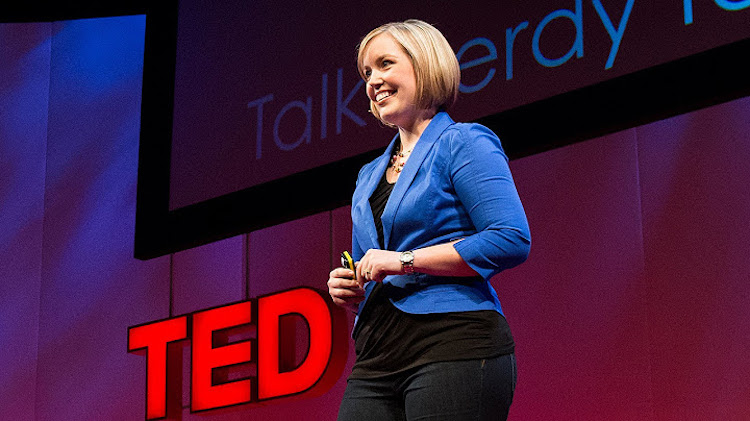
This talk explains scientific concepts simply, but it’s not as niche as it sounds.
Marshall’s advice contains lots of helpful advice for any public speaking opportunity, from avoiding jargon, to focusing on how your ideas impact your audience’s lives. Even if you don’t work at CERN (European Council for Nuclear Research) like Melissa, you’ll find plenty of useful tips in this whirlwind four-minute talk.
3. Megan Washington: Why I live in mortal dread of public speaking
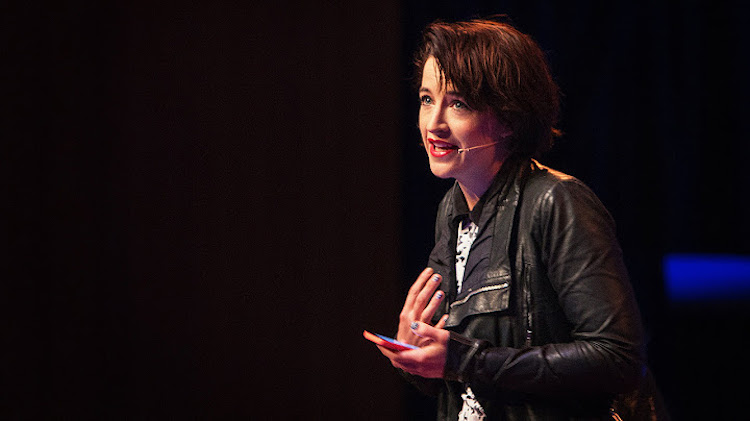
This talk is useful even if you’ve overcome your fear of public speaking.
Washington is an award-winning musician who’s struggled with a severe stutter since childhood. Her talk shows that public speaking isn’t about being pitch-perfect and never making mistakes. Instead, it’s about being empathetic, aware of your weaknesses and developing strategies to overcome them.
She shows how leveraging your strengths — singing, in her case — can make anyone into a memorable public speaker.
4. Al Wiseman: Finding the funny: The power of humour in public speaking
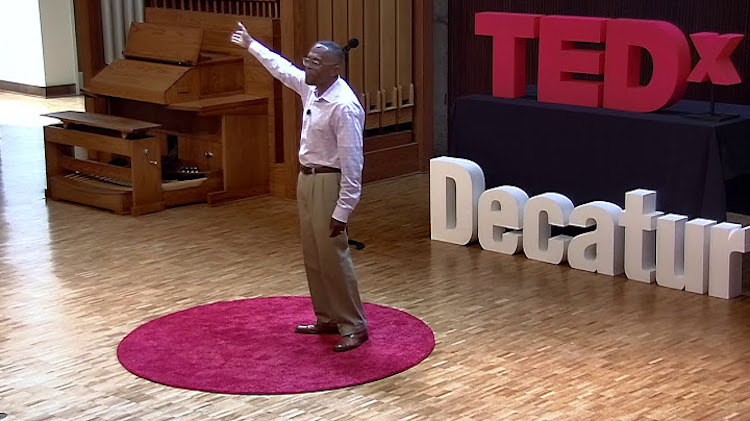
You can’t list great TED Talks on public speaking without including one on humour. Rather than long lists of punchlines, Wiseman roots the humour in everyday life. This provides a framework for authentic, relatable comedy that can liven up any presentation.
If you struggle with stage presence or making your talks memorable, this one will help you craft killer anecdotes that will get people’s attention.
5. Chris Anderson: TED’s secret to great public speaking
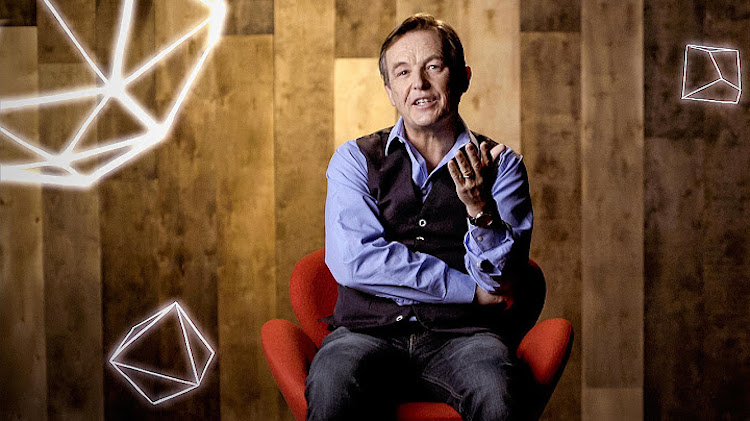
One of the greatest TED Talks on public speaking was given by none other than Chris Anderson, the creative vision behind TED.
Anderson has seen thousands of talks, so he knows what sets the good apart from the bad. The underlying goal of any good presentation, he explains, is sharing an idea with your audience.
Seems simple enough, but the hard part is making your idea worth sharing.
To do this, he recommends trimming down your talk to its bare essentials. It should focus on just one idea. He also notes that highlighting gaps in your audience’s knowledge is a good way to get their interest. Most importantly, people can tell if you’re just trying to sell something, so authenticity is vital.
If that’s not enough, you should also watch Anderson’s hour-long discussion with Google, titled ‘TED Talks: The Official TED Guide to Public Speaking’. In his talk, he delves deeper into the reasoning behind his advice and explains how being a great public speaker isn’t something you’re born with.
All that really matters, in fact, is having something worthwhile to say.
Follow the lead of these expert TED Talk presenters and you’ll be ready for your moment in the spotlight.






